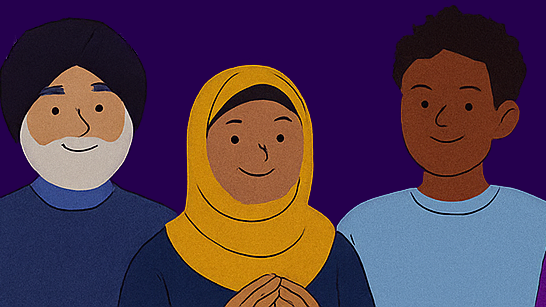Justice and Education – Turning Equality into Everyday Reality
Part of the CERD Awareness Series
At the heart of the International Convention on the Elimination of All Forms of Racial Discrimination (CERD) lies a truth that goes beyond law and policy: justice and education must work hand in hand to make equality real. Articles 6 and 7 of CERD remind us that while justice safeguards our rights, education shapes the values that uphold them. Together, they form the foundation of a fair, inclusive, and truly democratic society.
Justice: From Legal Remedy to Restored Confidence
Article 6 guarantees that every person who suffers racial discrimination must have access to “effective protection and remedies.” This is not only about punishment, it is about restoring dignity and reinforcing trust in the systems that are meant to protect us all.
For many within Scotland’s ethnic minority communities, however, access to justice can still feel distant. Consider Amina, a Scottish-born woman of African descent who experienced racial harassment in her workplace. When she reported the incident, she was advised to “try to resolve it quietly,” and felt discouraged from pursuing formal complaint channels. Though the law was on her side, her confidence in the system was not.
Amina’s story is not unique. It reflects a reality that too many people face, where legal rights exist but navigating them feels uncertain or isolating. Barriers such as fear of retaliation, limited awareness of rights, or institutional bias can deter individuals from seeking redress.
Scotland has made important progress: the Equality Act 2010, Hate Crime and Public Order (Scotland) Act 2021, and various equality strategies demonstrate a commitment to fairness. Yet, justice must be accessible, empathetic, and culturally competent. It must exist not only in statutes but in practice- in police stations, workplaces, schools, and communities.
Justice that restores confidence is justice that listens. It reassures every person that when discrimination occurs, the system will stand beside them, not above them.
Education: Transforming Understanding and Building Inclusive Futures
If justice repairs what is broken, education prevents harm before it begins. Article 7 of CERD places a global duty on states to promote teaching, culture, and information that foster understanding, tolerance, and friendship among all peoples.
In Scotland, education has been an evolving force for inclusion. Schools increasingly recognise the importance of teaching about race, identity, and history. Initiatives to diversify the curriculum and highlight the contributions of Black and ethnic minority Scots are gaining ground. Community-led organisations have also played a vital role in facilitating dialogues, youth programmes, and creative projects that challenge prejudice and celebrate belonging.
And yet, gaps remain. Research shows that ethnic minority pupils continue to face bullying, microaggressions, and underrepresentation in leadership roles. Teachers and professionals often express uncertainty about how to address racism confidently and constructively in their settings.
Imagine a classroom where Malik, a 12-year-old Scottish Pakistani boy, hesitates to raise his hand when lessons touch on migration because he fears being singled out. That moment though small can shape how he views belonging for years to come.
Education against racism must therefore be proactive, not reactive. It must be woven into the ethos of our schools, the training of our educators, and the policies that guide our institutions. When we educate with honesty, empathy, and courage, we not only combat prejudice, we nurture the next generation of allies, leaders, and changemakers.
Education is not simply about transferring knowledge; it is about transforming attitudes.
Justice and Education: Two Pillars, One Purpose
Articles 6 and 7 together remind us that equality must be both defended and taught. Justice ensures accountability when discrimination occurs; education builds the understanding to prevent it from recurring.
For BEMIS Scotland, this dual focus reflects our ongoing mission to empower ethnic minority communities, strengthen access to rights, and build institutions that reflect Scotland’s diversity and values. Through training, community engagement, and advocacy, we continue to advance a vision of Scotland where equality is not just an aspiration but a lived experience for all.
Achieving this vision requires shared commitment from government to grassroots, from classroom to courtroom. Because when justice uplifts and education enlighten, we move closer to a Scotland where every person, regardless of background, can live free from discrimination, and thrive with dignity and purpose.
Justice restores. Education transforms.
Together, they make equality real.
⚖️ CERD in Scotland: From Commitment to Action
#CERDSeries #JusticeAndEducation #RacialEquality #AntiRacismInAction #BEMISScotland #EqualityInPractice #HumanRightsScotland #AccessToJustice #EducationAgainstRacism #InclusionMatters #ScotlandForAll

